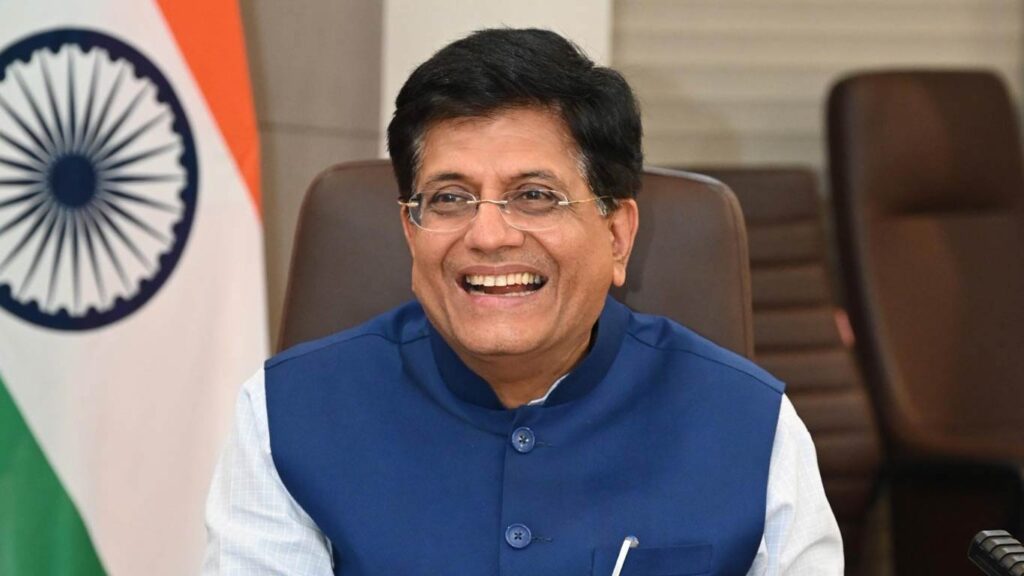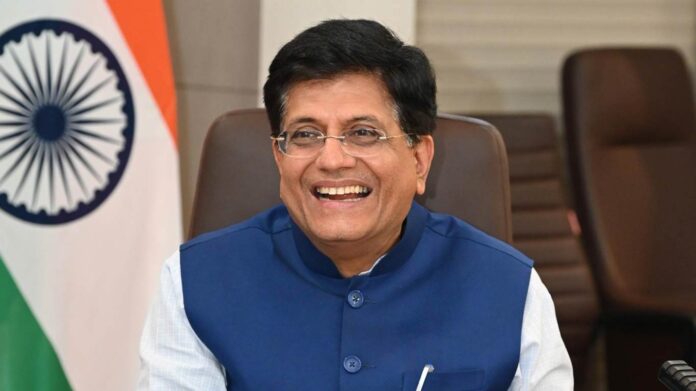
The Ministry of Commerce and Industry, led by Piyush Goyal, has made significant progress during the first 100 days of the Modi 3.0 government. Focused on advancing the nation’s economic agenda, the ministry has worked on multiple fronts, including allowing special economic zones (SEZs) to sell domestically, establishing a comprehensive trade information platform, standardizing procedures for negotiating free trade agreements (FTAs), and developing e-commerce export zones.
These initiatives align with Prime Minister Modi’s vision to propel India’s growth. A notable outcome is the launch of the ‘Trade Connect e-Platform’, which aims to empower SMEs by providing them with vital trade information and guidance. The platform connects over six lakh import-export code (IEC) holders, 185 Indian Missions, and more than 600 Export Promotion Council members with the Department of Commerce.
In a statement reflecting on achievements from June to August 2024, the ministry highlighted several key measures. One such initiative is the enhanced insurance cover for MSME exporters, along with efforts to reduce compliance burdens through a self-certified Electronic Bank Realisation Certificate (eBRC) system. This cover, expected to provide Rs 20,000 crore in credit at lower costs, will make Indian exports more competitive, benefiting approximately 10,000 exporters. The ministry also noted that the new eBRC system is more efficient in processing high-volume, low-cost transactions, particularly in e-commerce. Furthermore, the self-certification process for generating eBRCs, previously costing between Rs 500 and Rs 1,500 per certificate, will now save exporters a collective Rs 125 crore annually, significantly reducing their cost burden.
Mumbai’s only minister makes promissory note
North Mumbai MP Piyush Goyal has marked 100 days of Modi 3.0 govt with a promissory note. To bolster India’s e-commerce export potential, the Goyal’s ministry is developing an e-commerce export hub (ECEH) aimed at bridging infrastructure gaps and addressing regulatory challenges. On August 22, 2024, the ministry issued an Expression of Interest (EoI) for the project. This initiative will benefit artisans, SMEs, and producers under the ‘One District One Product’ (ODOP) scheme by providing more accessible global markets and reducing logistics costs. In efforts to enhance MSME participation on the Government e-Marketplace (GeM) platform, the ministry reduced transaction charges for orders ranging between Rs 10 lakh and Rs 10 crore and simplified the transaction slabs from five to two.
Establishing ‘Bharat Mart’ in JAFZA, Dubai
One of the ministry’s major upcoming projects is the establishment of ‘Bharat Mart’ in the Jebel Ali Free Zone (JAFZA), Dubai. This physical trade hub will be dedicated to Indian exporters, creating a wholesale and retail marketplace specializing in Indian-made goods for distribution across the UAE, Middle East, Africa, Central Asia, and Europe. Since the Expression of Interest was issued on July 1, 2024, the ministry has received 9,313 applications. Construction of Bharat Mart is expected to begin in the fourth quarter of 2024, with facility bookings commencing in early 2025. In a bid to enhance transparency and streamline operations, the ministry launched the ‘Jan-Sunwai’ Virtual Interface across all its offices on September 13, 2024. This video-conferencing-based system allows stakeholders to engage with ministry officials remotely, eliminating the need for physical office visits.
Schemes for farmers and tea garden workers
The ministry has also taken steps to strengthen the Organic Regulatory Ecosystem by revamping the National Programme for Organic Production (NPOP) guidelines. The revised guidelines are aligned with global standards, particularly those of the EU and the USA. This reform will benefit around 20 lakh farmers associated with 5,000 grower groups certified under NPOP standards, offering them greater access to international organic markets. The ministry is focusing on improving the quality of life for tea garden workers, particularly women and their children, in Assam and West Bengal, the two largest tea-producing states. Under the Pradhan Mantri Cha Shramik Protsahan Yojana (PMCSPY), Rs 501.5 crore has been allocated in the 2024-25 budget for this initiative. These funds will be used to enhance the living conditions and welfare of tea garden workers, reinforcing the government’s commitment to uplifting marginalized communities.
In conclusion, the first 100 days of the Commerce and Industry Ministry under Piyush Goyal have seen several impactful initiatives aimed at improving trade, empowering SMEs, and boosting exports. The ministry’s forward-thinking approach is expected to yield long-term benefits for the economy, supporting India’s goal of becoming a global economic powerhouse.
Key Achievements of Commerce & Industry Ministry in 100 Days
● Support for Special Economic Zones (SEZs)
● Trade Information Platform
● Enhanced Insurance Cover for MSME Exporters
● E-Commerce Export Zones
● E-Commerce Export Hub (ECEH)
● Reduced Transaction Charges for MSMEs on GeM
● Bharat Mart in Dubai
● Jan-Sunwai Virtual Interface
● Strengthened Organic Regulatory Ecosystem
● Support for Tea Garden Workers

